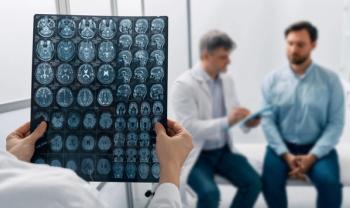
Migraine Knowledge Gaps Among Women’s Health Care Providers
A study observed gaps in migraine knowledge in women’s health care providers. Pharmacists can play a role in provider education on prophylaxis and treatment.
Women’s health care providers’ may benefit from headache-specific education to improve knowledge gaps regarding the management of migraine in their patients, according to a new study.1
Migraine is often underdiagnosed and inadequately treated in the primary care setting.1 In women particularly, migraine is one of the leading serious health problems, according to the Migraine Research Foundation. Of the more than 39 million Americans who suffer from migraines, 28 million are women.2
The study, which was published in Headache, included a comprehensive survey assessing of migraine knowledge among primary care providers (PCPs), with an added section on the use of hormonal medication in patients with migraine.1
Overall, 115 women’s health care providers completed the survey. Based on the findings, women’s health care providers generally recognized the prevalence of migraine, but experienced knowledge gaps regarding management.1
Although 82.6% of respondents said they feel comfortable or somewhat comfortable diagnosing a migraine, only 57.9% reported routinely asking patients about headaches during annual visits. Additionally, only 6.3% were familiar with the American Academy of Neurology guidelines on preventative treatment and 17.3% were familiar with the Choosing Wisely Campaign recommendations on migraine treatment. Many reported prescribing medications known to contribute to medication overuse headache.1
Notably, only 37.5% of respondents reported having migraine and headache education, and most (96.3%) indicated interest in migraine prevention and treatment, migraine associated disability, and diagnostic testing.1
Other findings from the study:1
- Only 24.3% would order imaging for a new type of headache, 35.7% for worsening headache, and 47.8% for headache with neurologic symptoms.
- Respondents had limited knowledge of evidence-based, non-pharmacologic treatments for migraine (ie, biofeedback or cognitive behavior therapy), with nearly none placing referrals for these services.
- Most providers were comfortable prescribing hormonal contraception (mainly progesterone only) to women with migraine without aura and with aura, and followed guidelines to limit combination hormonal contraception for patients with aura.
Pharmacists can play an important role in providing education on migraine prophylaxis for better patient outcomes in the primary care setting. A
References
- Verhaak AMS, Williamson A, Johnson A, et al. Migraine diagnosis and treatment: a knowledge and needs assessment of women’s health care providers. 2020. Headache.
https://doi.org/10.1111/head.14027 - About migraine. Migraine Research Foundation. Accessed January 15, 2021.
https://migraineresearchfoundation.org/about-migraine/migraine-in-women/
Newsletter
Pharmacy practice is always changing. Stay ahead of the curve with the Drug Topics newsletter and get the latest drug information, industry trends, and patient care tips.























